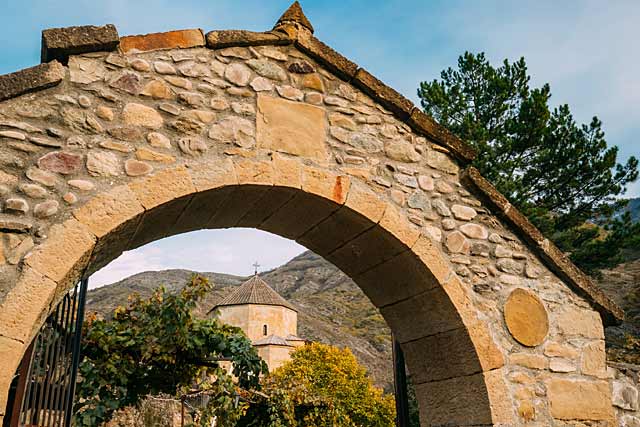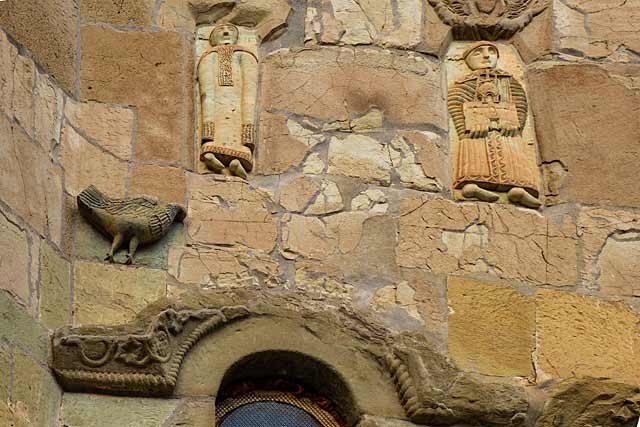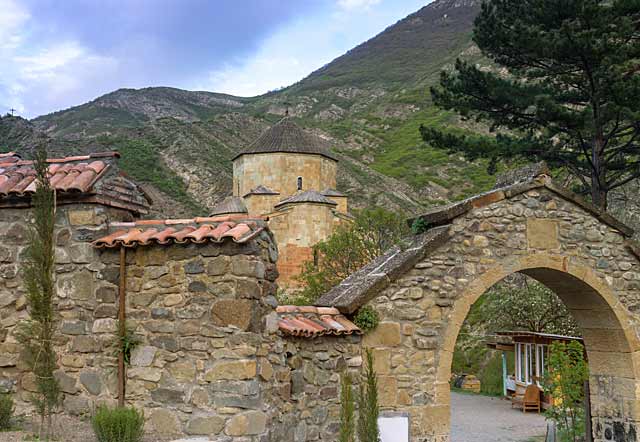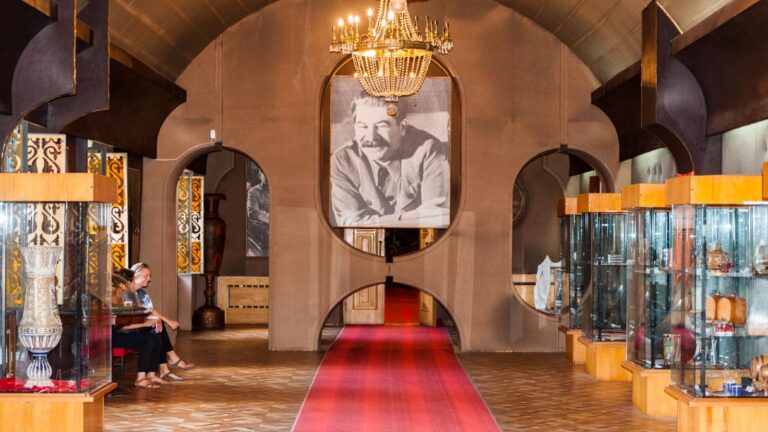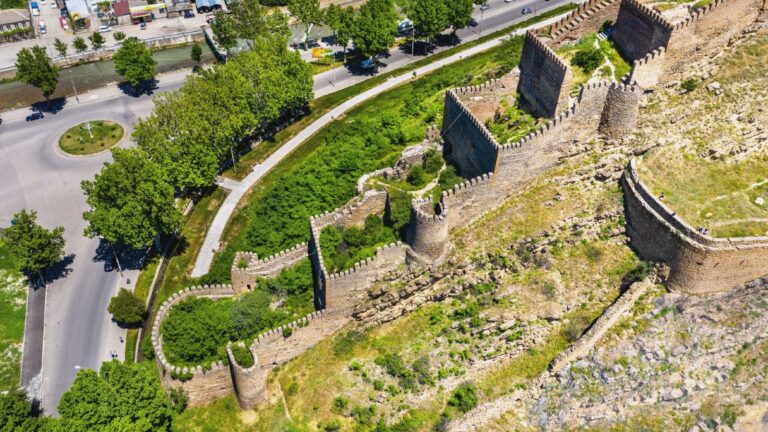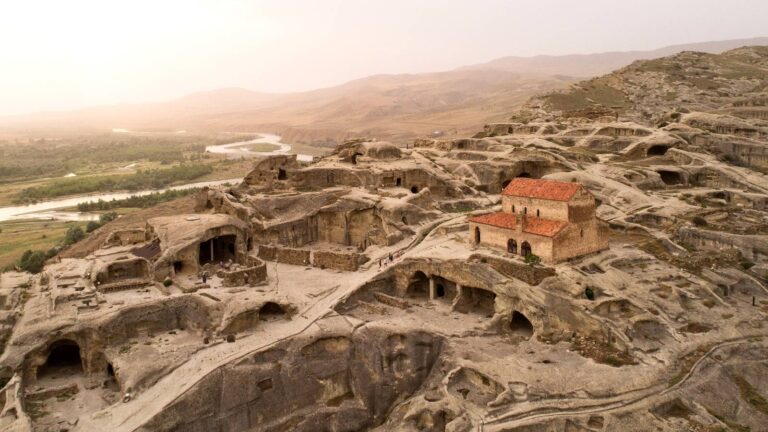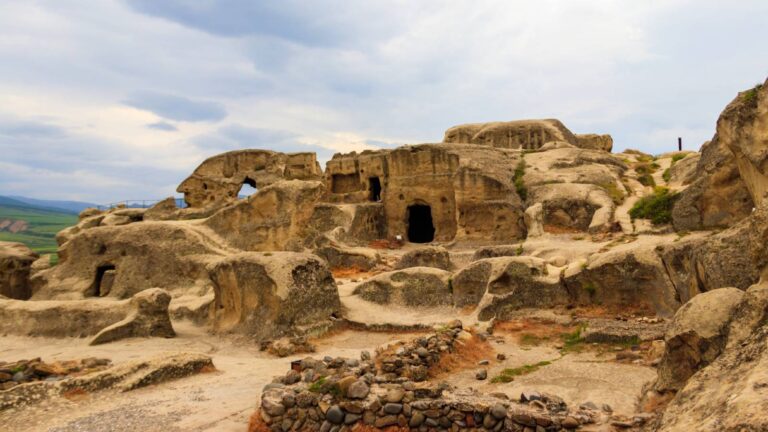Getting There
It takes about 2 hours of driving to arrive from Tbilisi to the destination. You can hire a private car, taxi, minivan, or use public transportation to get there.
What to Expect
The temple was built in the VII century, and it was modeled on Mtskheta Jvari Monastery (UNESCO heritage site.)
The attraction is known for its unique architecture, immersed in a captivating nature. Its walls are decorated with traditional ornaments, ancient scripts, and fascinating frescoes.
History
The Ateni Sioni Church, located in Ateni village, Georgia, is an early 7th-century Georgian Orthodox church known for its historical significance and picturesque surroundings. The tetraconch-style church features remarkable frescoes, showcasing the finest examples of Georgian painting. Its architecture includes a domed tetraconch design with four apses and niches, adorned with ornate reliefs and decorative elements.
The church’s facades exhibit a combination of original reddish-colored ashlar and restored carved rectangular greenish-gray stones. The reliefs depict scenes such as a deer hunting scene on the western facade and two deer drinking from a rounded pool on the northern entrance tympanum. The church’s design is reminiscent of the Jvari Monastery in Mtskheta, suggesting a connection between the two structures.
While the exact date of construction is unknown, the Ateni Sioni Church is believed to belong to the “Jvari-type” group of churches and is attributed to the builder or renovator Todosak, as mentioned in an Armenian inscription on the southern facade.

